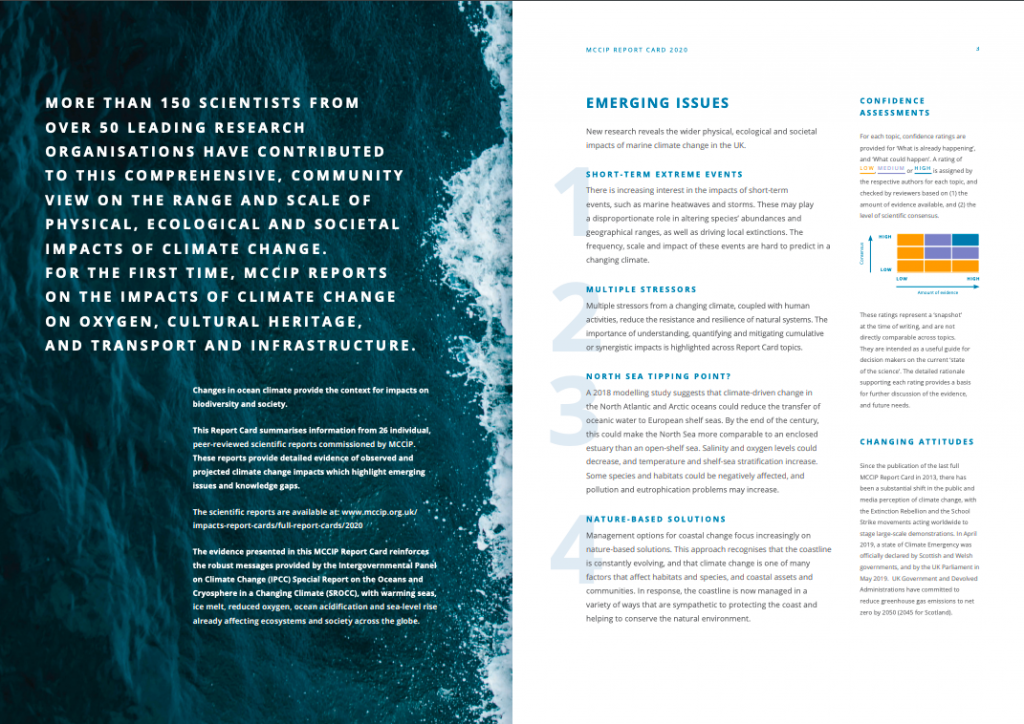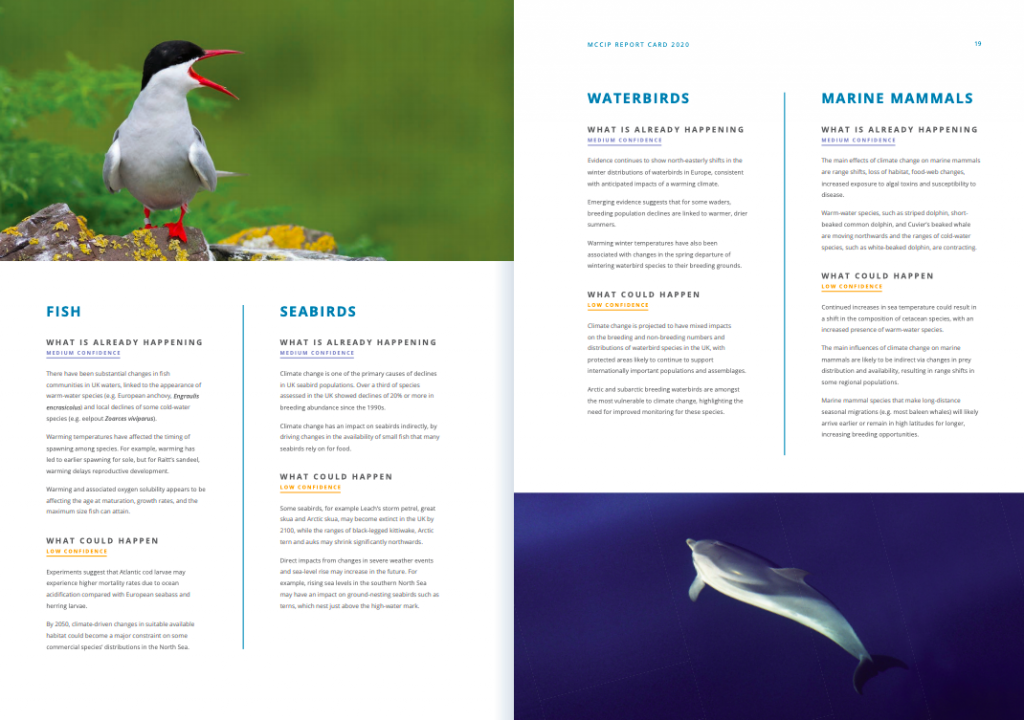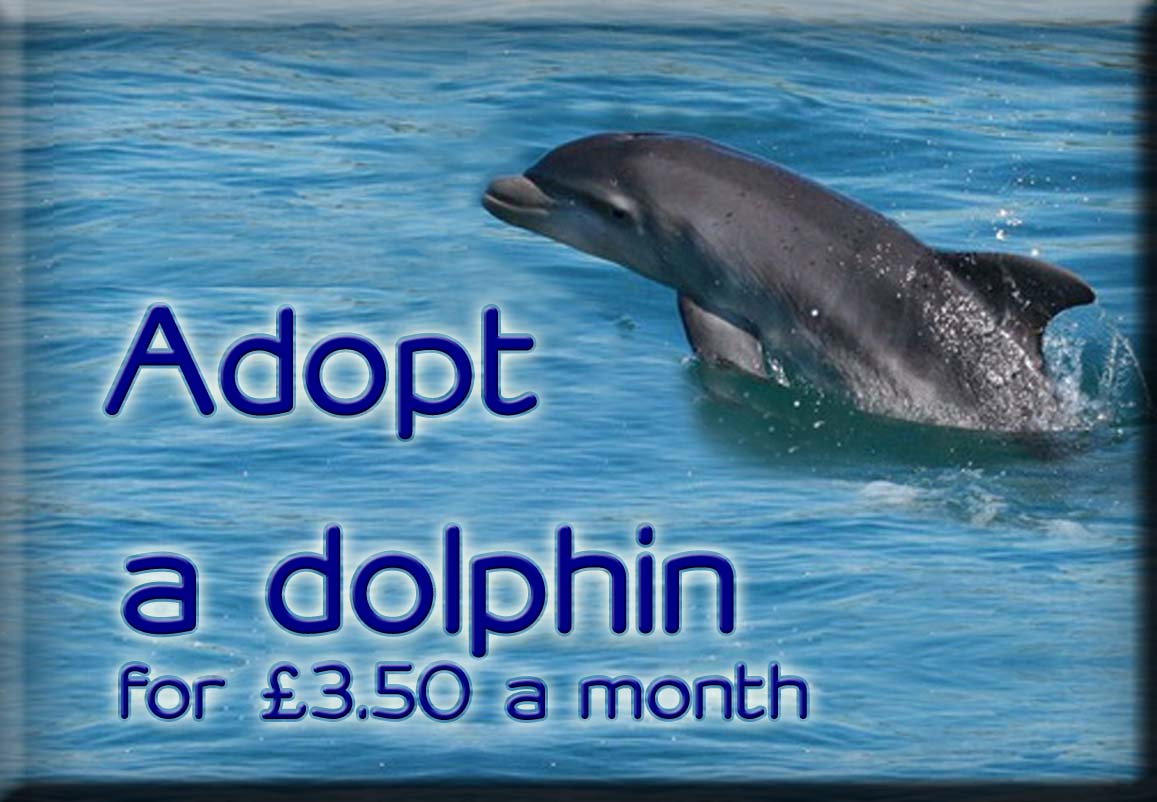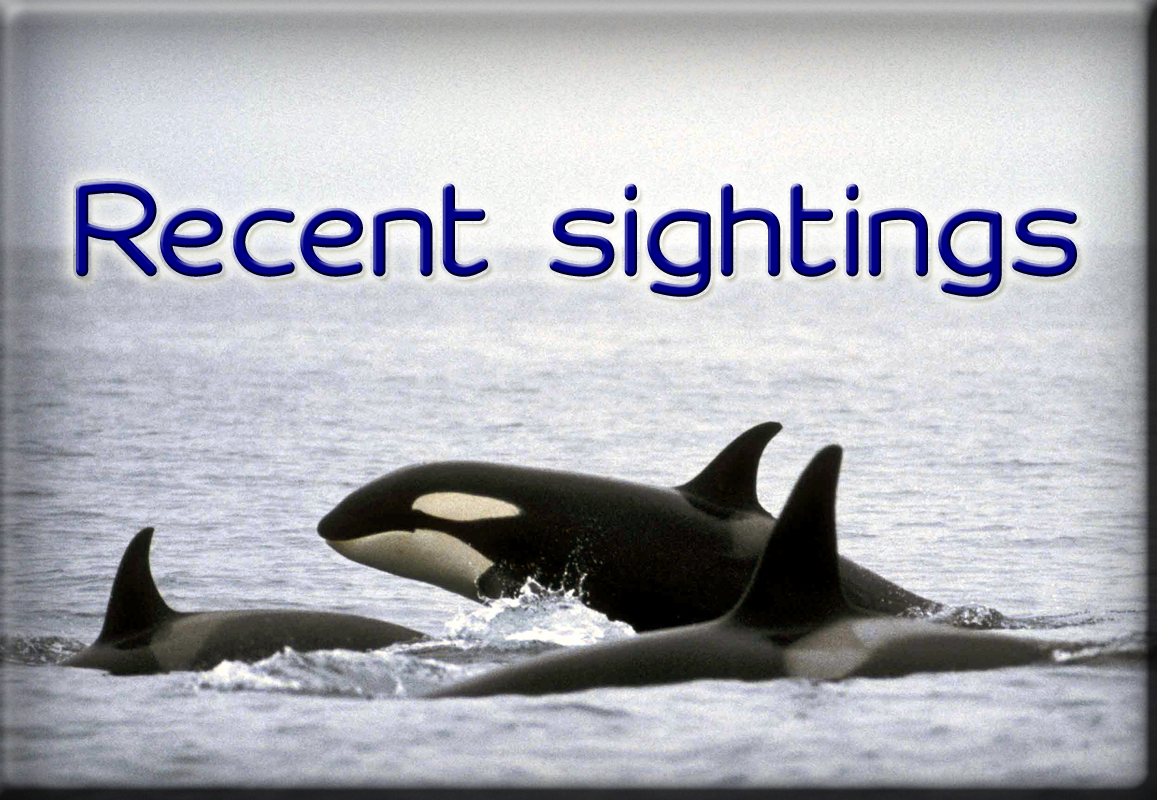Climate change is currently a hot topic both politically and in the scientific community. In the marine science community, climate change is generally accepted as having the potential to have detrimental effects on the marine ecosystem, some of which have already been observed.
The Sea Watch Foundation holds one of the largest databases on cetaceans sightings and distribution in Europe and distribution maps produced in previous years, particularly of cold water species such as white beaked dolphins already showed some indications of changes in habitat use.
Last year, Dr. Peter Evans, the director of the Sea Watch Foundation worked with the UK, Dr. James Waggit, a researcher from Bangor university who works closely with the Sea Watch Foundation and Marine Climate Change Partnership (MCCIP) to produce a climate change report card, summarising observed and suspected effects on marine mammals. This report has now been published and can be viewed on the MCCIP website.
This report confirms some of the trends picked up by Sea Watch distribution maps in previous years. The main effects of climate change on marine mammals are range shifts, loss of habitat, food-web changes, increased exposure to algal toxins and susceptibility to disease. Warm-water species, such as striped dolphin, shortbeaked common dolphin, and Cuvier’s beaked whale are moving northwards and the ranges of cold-water species, such as white-beaked dolphin, are contracting.
Continued increases in sea temperature could result in a shift in the composition of cetacean species, with an increased presence of warm-water species. The main influences of climate change on marine mammals are likely to be indirect via changes in prey distribution and availability, resulting in range shifts in some regional populations. Marine mammal species that make long-distance seasonal migrations (e.g. most baleen whales) will likely arrive earlier or remain in high latitudes for longer, increasing breeding opportunities.
To read the full review written by Dr. Peter Evans and Dr. James Waggit, click here.
If you want to contribute to cetacean conservation, check out our ‘Get Involved’ pages to find out what you can do to help. Our volunteer based sightings network has been vital in producing reports such as these. Any observations of cetaceans around the UK can contribute to our understanding of the different species and their habitat use so next time you are heading to the coast, don’t forget your binoculars!
To learn more about how to record cetaceans, check out our recording forms here or contact our Sightings Officer on chiara.giulia.bertulli@seawatchfoundation.org.uk to find out more about how to get involved in observing and reporting cetaceans.


























